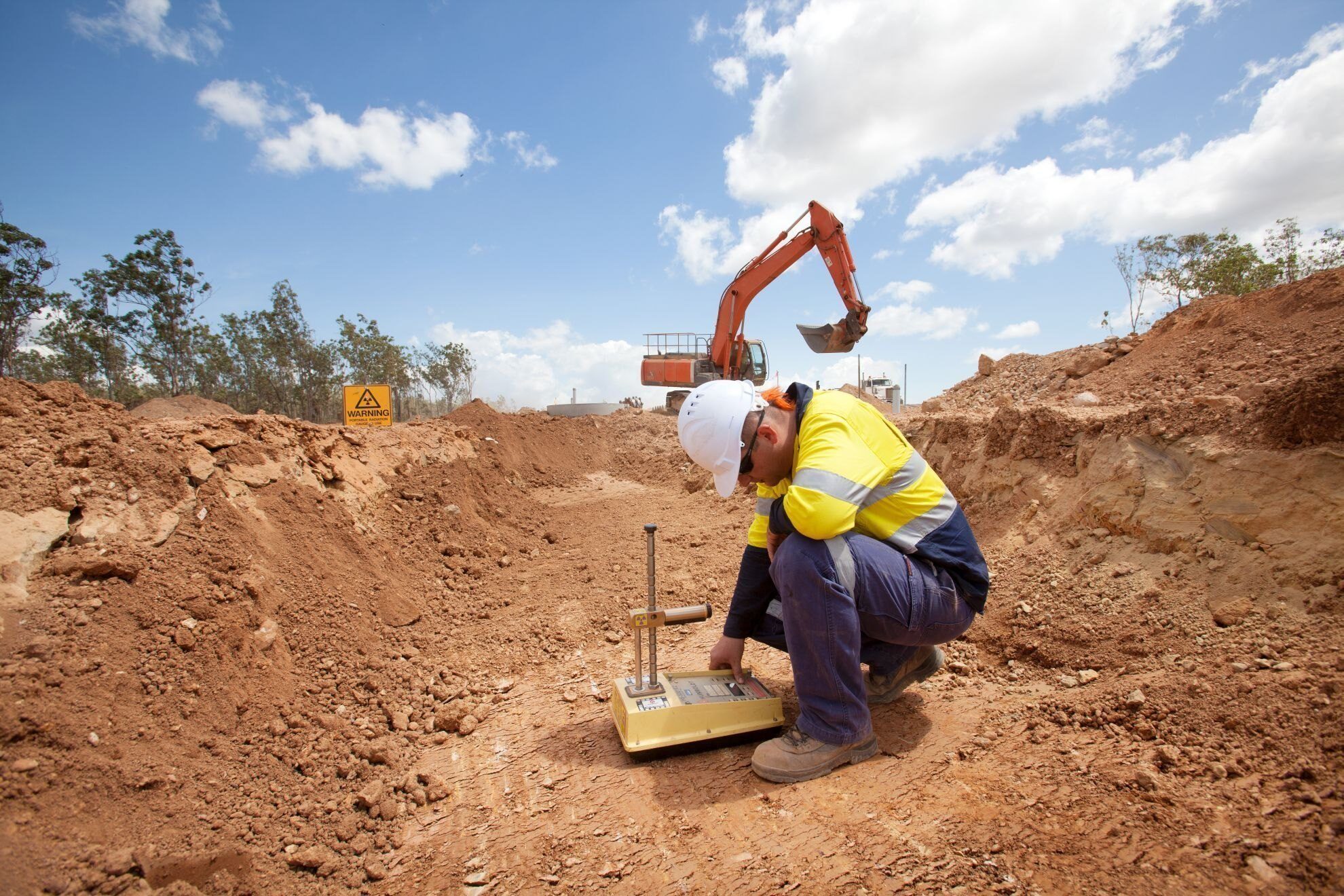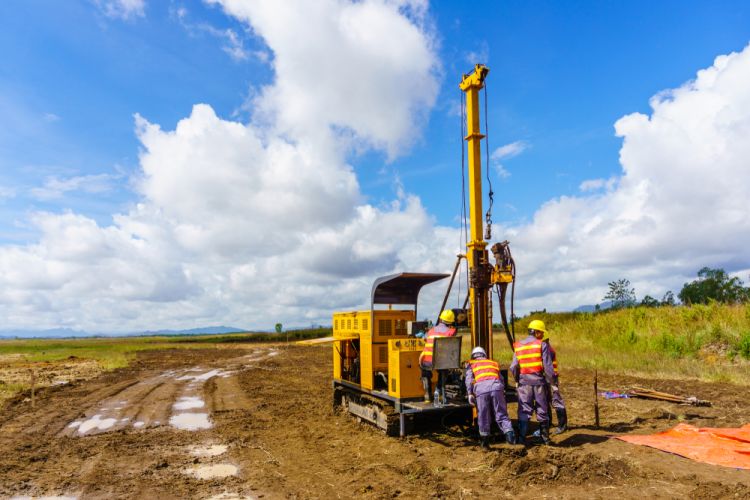Geotechnical Engineering For Construction Projects Can Be Fun For Anyone
Geotechnical Engineering For Construction Projects Can Be Fun For Anyone
Blog Article
Everything about Geotechnical Engineering For Construction Projects
Table of ContentsThe smart Trick of Geotechnical Engineering For Construction Projects That Nobody is DiscussingOur Geotechnical Engineering For Construction Projects StatementsNot known Facts About Geotechnical Engineering For Construction ProjectsThe smart Trick of Geotechnical Engineering For Construction Projects That Nobody is DiscussingGeotechnical Engineering For Construction Projects Things To Know Before You Buy
During the examination, it is essential to pierce at the required depth and the needed number of holes as per the suggestion of the Canadian Foundation Style requirement. In some cases, the proprietor may conserve some Geotechnical Investigation expense but end up spending greater than the expected during the building and construction price.The responsibilities of the geotechnical expert entail giving product screening for building assistance. Geotechnical Engineering for Construction Projects. Geotechnical designers analyse all the area examination records to ensure that construction is going on as per the job spec. During building and construction, a confirmatory examination for dirt compaction is done on-site to ensure that no future settlement happens
After the concrete is poured -7 days and 28 days- examinations are conducted on concrete samples accumulated from the website to ensure that the concrete put meets the style requirement. Asphalt core is taken after the Asphalt is laid and compressed to validate that it meets the style standard. All research laboratory test reports are evaluated by the Geotechnical Engineer to guarantee that it meets the job specification.
The smart Trick of Geotechnical Engineering For Construction Projects That Nobody is Talking About

Geotechnical engineering plays a critical duty in guaranteeing the stability of building projects. Geotechnical design is a crucial branch of civil design that concentrates on understanding the behavior of earth products, such as soil and rock.

For a dependable foundation and a smooth construction process, depend supply the proficiency you require. Call to obtain professional recommendations and geotechnical solutions tailored to your following project.
Not known Facts About Geotechnical Engineering For Construction Projects
When starting a land development job, comprehending the ground under your feet is as crucial as the frameworks you plan to develop above it. Our Geotechnical Engineering group analyse the ground, ensuring it appropriates for the suggested growth while providing you with the information needed to fulfill your task objectives.
Geotechnical Engineering checks out the formation of the ground, as it is the foundation for all jobs. Where frameworks need to be designed with respect to the ground conditions; ground conditions (e.g., soft ground) may need reinforcing depending on the dimension of the intended structure. Prior to structure, you need to understand about the groundwater, soil framework, and liquefaction likelihood of your land.
For sites that are not linked on the local authority facilities added site investigations would be called for to offer technological visit this page inputs for on-site stormwater and wastewater. We have experienced Geotechnical Designers based in each workplace, supporting your geotechnical needs nationwide. Get to out to us to go over how we can sustain your next project.
These reports are customized to meet the particular demands of a job and include style specifications and guidance for the building of a range of manufactured structures. As offering consultancy services covering areas such as slope security and load-bearing capabilities for different products, these designers undertake research and advancement activities to boost methodologies, tools, materials understanding and analysis covering whole lifecycles.
The Best Guide To Geotechnical Engineering For Construction Projects

Prices of pay normally raise as your expertise and abilities expand, with standards directing to a graduate beginning wage of between 18,000 and 28,000 per year in the UK. This rises to 26,000 to 36,000 with a few years of experience and then getting to 40,000 to 60,000+ for elderly, chartered or master engineers.
Nonetheless, with the ideal application it is feasible to grasp the profession and gain access to a difficult yet rewarding and vital occupation. A rock hound would certainly need to re-train to end up being a geotechnical designer, although there is lots of cross-over between the 2 careers, which could make this less complicated - Geotechnical Engineering for Construction Projects. Geologists need to have an understanding of dirts, rocks and other materials from a clinical viewpoint, while geotechnical designers story their knowledge of issues such as soil and rock technician, geophysics and hydrology and use them to engineering and environmental tasks
When beginning out, these engineers will have a tendency to work with much less complicated projects, accumulating understanding and experience all set for more challenging job later on. Geotechnical designers have a tendency to specialise in specific areas as they grow in experience, concentrating on particular frameworks such as railways, roadways or water. These engineers likewise deal with sustainable energy, offshore and onshore oil and gas, nuclear power, and much more.
Unknown Facts About Geotechnical Engineering For Construction Projects
The time required to become a geotechnical engineer relies on where you are based, where you research and what degree of education and learning you intend to attain prior to getting in the office. As an example, are you going to that site check out an instruction, take an university level or service in the direction of a Master's or PhD? Generally-speaking it takes 3-4 years to reach the fundamental demands to begin a career as a geotechnical designer.
These procedures make it possible for professionals to evaluate a host of dirt mechanics including weight, porosity, void-to-solid bit ratio, leaks in the structure, compressibility, optimum shear browse around this web-site strength, birthing capacity and contortions. If the structure needs a deep foundation, engineers will use a cone infiltration test to approximate the quantity of skin and end bearing resistance in the subsurface.
When examining a slope's balance of shear tension and shear stamina, or its ability to stand up to and undertake motion, rotational slides and translational slides are typically taken into consideration. Rotational slides stop working along a bent surface, with translational slides taking place on a planar surface area. A specialist's objective is to determine the problems at which an incline failing can occur.
Often, searchings for suggest that a site's soil ought to be dealt with to boost its shear stamina, stiffness and permeability before design and building and construction. When it comes time to outline structure strategies, specialists are significantly focused on sustainability, more particularly exactly how to reduce a foundation's carbon footprint. One technique has actually been to change 20 percent of a structure's cement with fly ash, a waste product from coal fire power plants.
Report this page